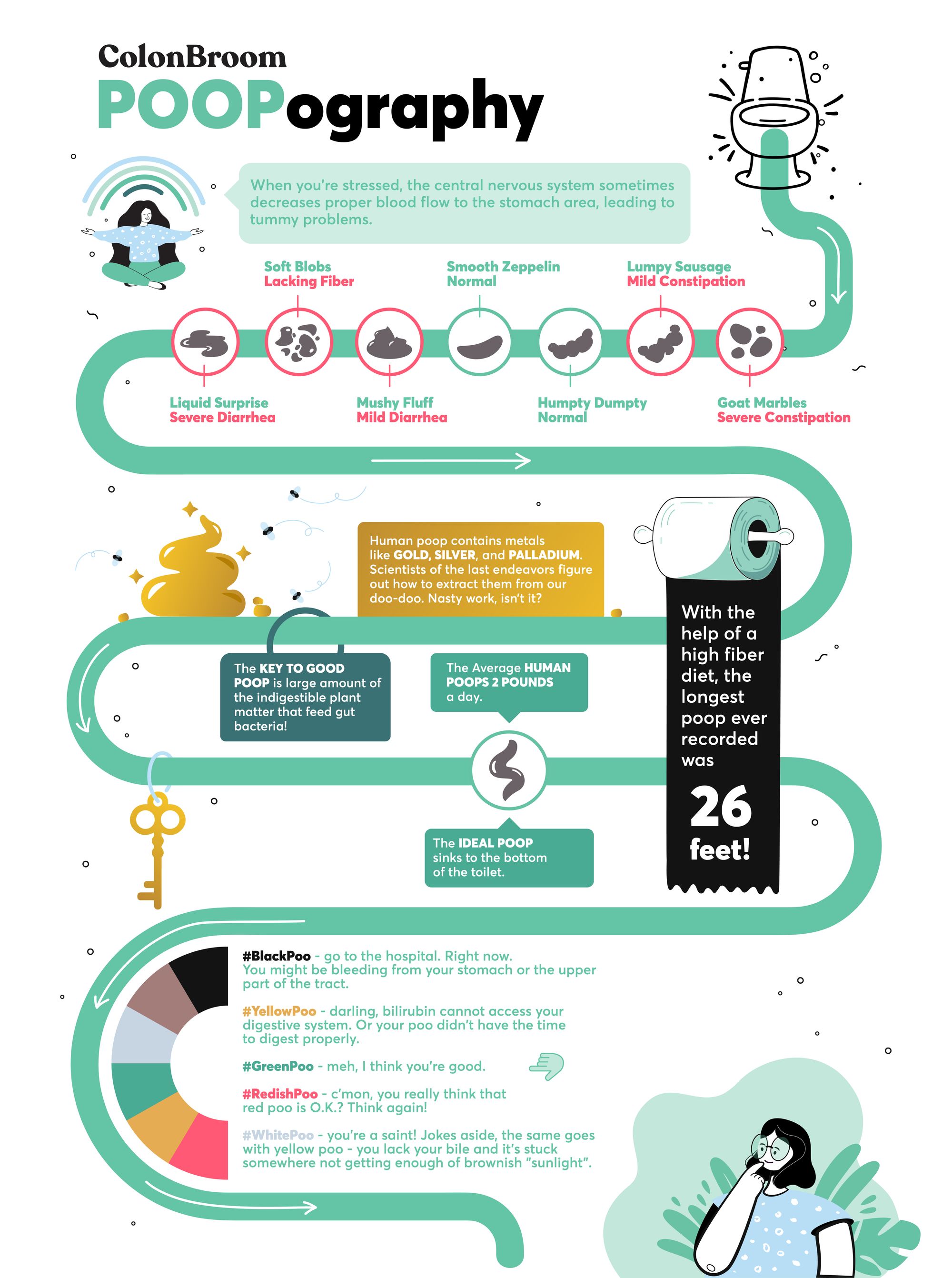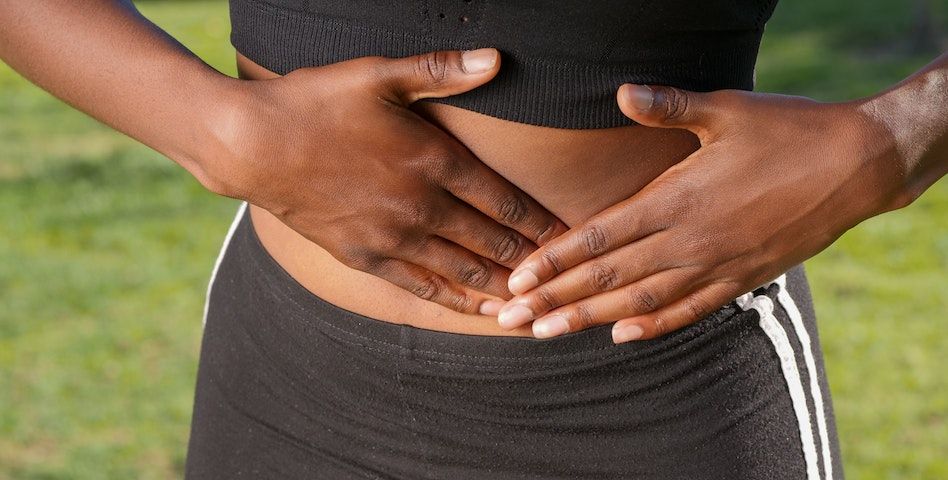Best Ways to Improve Your Digestion Naturally
Do you wish to work on your digestion? We've got you covered! Read the blog to figure out natural ways to set right your digestive issues.

Being constipated, carrying around a bloated belly, or having blockages in your digestive system is no fun. While there are many ways to ease digestion, you may not want to reach out for a laxative in the first place.
Fortunately, there are many natural tips and tricks to avoid digestive issues and give your gut the proper nutrients to thrive. In this article, we’ll explain the main reasons behind the turbulences happening in your gut and provide more information on what could help you.
What Causes Slow Digestion or Digestion Problems?
There’s a variety of things possibly ruining your chances of getting the smoothest digestion. To make sure you’re buckled up, it’s essential to understand the fundamental causes of an upset stomach.

#1: You’re eating the wrong food
You are what you eat, they say. And while it’s hard to understand what this quote is all about, it comes in handy when remembering that the food you consume will linger in your body for a while before it exits.
There are foods and drinks that you should avoid if you want to keep things moving. These include:
● Milk and dairy products (cheese)
● Red meat (meats high in fat)
● Processed and refined grains (white bread, rice, pasta)
● Fast or fried foods (processed foods high in fat and salt)
● Alcohol (encourages fluids loss)
● Gluten-rich foods (gluten intolerance and celiacs disease are linked to constipation)
Moreover, don’t forget the impact of fizzy drinks! Fizzy drinks are notorious for giving you a gassy gut. A cold coke, a bubbly prosecco, beer... Yeah, all these turn into a dramatic horror movie theme song in your belly.
Fizzy drinks contain a high amount of carbon dioxide, the gas that makes the drinks bubbly. Some of that gas gets trapped in your digestive system, which is why it is often followed up by bloating.
Instead, replace these foods with selections that are low in fat and high in fiber. Fiber is easily digested or broken down by the gut and is left intact as it moves through the bowels. Think of it as a sponge moving through your intestines, gaining more bulk as it goes along, pushing everything in the right direction.
Foods high in fiber are most fruits and veggies, whole grains, legumes, and nuts.
Also, let’s not forget the natural probiotic sources. Fermented foods contain a whole lot of good bacteria that support gut health. While there is mixed evidence about whether probiotic supplements are effective, natural sources are definitely beneficial.
The go-to fermented foods that contain probiotics are kefir, kombucha, yogurt, miso, tempeh, and sauerkraut. The nutrients these foods contain aid digestive symptoms like bloating and reduce overall inflammation and tension in your gut by creating a healthy environment in the digestive tract. It is especially beneficial for those with irritable bowel syndrome (IBS). If you still want to enjoy the creamy, lovely texture of dairy but do not want to experience the side effects of temporary pleasure, opt for aged cheese, probiotic yogurt, cottage cheese, or simply lactose-free options.

Regarding fizzy drinks, switch to more gut-friendly options, such as coffee, tea, water, or fruit- flavored still water. Try white or red wine and spirits if you want an alcoholic beverage that will not give you a balloon belly.
#2: Medication that clogs your digestive system
Many medications, antidepressants, dietary supplements, and antacids come with the unintended side effect of constipation. Painkillers are the biggest offender of prolonged constipation. If you are having a difficult time going, perhaps the medications you are taking are the root cause.
Read the information pamphlet that comes with your prescriptions; if constipation is listed as a possible side effect, you likely found the issue. Talk to your doctor to see if there are any substitute medications or supplements you can switch to in order to alleviate the blockage.
#3: Stress can really make you sick to your stomach
Stress is notorious for affecting our whole body, and our digestive system is no exception. Stress hormones directly influence bowel movements by affecting bodily processes.Those that are easily stressed out tend to forget to drink enough water, nourish their bodies with a proper diet, or exercise. If constipation swings around while you are stressed, the best you can do is keep yourself hydrated and nourished during these turbulent times.
#4: Changes in your regular routine

Finally on the plane to your dream destination? Just started a new diet? Is finals week robbing you of your precious sleep? Expect changes in your bowel movements. Our bodies need some time to adjust to new conditions, such as a new eating pattern, less sleep, or a different time zone with a different climate. There is an easy fix – allow some time to pass and introduce some fiber into your diet. This way, your body will return to its’ usual movements much faster.
#5: Not getting enough exercise
Introducing some movement in your daily life is the key to getting things moving in your gut. Regular exercise helps stool pass through your digestive system and leads to more regular number twos. Research shows that even a 30-minute walk after a hearty meal makes it easier to digest and prevents constipation.
#6: Not drinking enough water
It is hard to find a list of any condition’s causes without dehydration. And it makes sense! Drinking water is a no-brainer, yet many don’t drink enough of it.
Water softens and lubricates the stool, making it easier to pass through our gut. When there is a lack of hydration, the stool hardens up and becomes more challenging to pass. The first step toward regulating your bowel movement is always to ensure you drink at least eight glasses of water per day.
#7: Resisting the urge to poop
Sometimes, it seems like now is not the best time for your number two, whether you are at someone’s house or in a public place. The more you resist the urge to poop, the worse your digestion will get. Our suggestion is to brush it off and remember: it is normal; everyone has bowel movements. There are some simple tricks for “shy bowels”: turning on the tap while in the bathroom or throwing some toilet paper in the toilet before the number two. These tricks will help suppress the unwanted sounds you might be shy of.
#8: Pregnancy
Quite a lot of pregnant women get digestive issues at some point. While it can occur during any trimester, it is more likely to happen in the third trimester – the fetus is the heaviest at this point and is putting the most pressure on your bowel. Reach for fiber-dense foods or fiber supplements in this case.
#9: Health Conditions
Many medical conditions could cause constipation. Endocrine problems, colorectal cancer, IBS, lazy bowel syndrome, Parkinson’s disease, and many others could be one of them. In this case, it is best to seek medical help and consult a doctor.

What Is Fiber, and Why Is It Important?
As mentioned before, fiber is one of the go-to ways to get things moving in your gut. Although it may sound like a one-time remedy, fiber is a nutrient that one needs every day for proper gut function. In fact, 8 in 10 Americans don’t get enough fiber in their diet, making it harder to maintain fit and healthy gut microbiota.
Fiber’s super-power is taking great care of your gut – it is a viscous water-loving substance that makes it easier to flush toxins out of your body by increasing the volume of stool. With enough fiber and water in your diet, you can ensure that the buildup in your gut is not secretly undermining your health. As an essential part of a healthy diet, fiber improves digestion and lowers cholesterol levels in the blood.
So, if you want to better your overall well-being and stay in better health, the first thing you need to do is include more fiber in your diet. Regarding how much fiber does one need, most American adults get about 10–15 grams of fiber a day, and that is nowhere near enough to what their bodies actually need. The USDA recommends that adult men up until the age of 50 get 38 grams and after the age of 50 – around 30 grams a day.

Likewise, adult women up until the age of 50 should get 25 grams, and after the age of 50, they should get approximately 21 grams of fiber a day. Making sure you consume enough fiber provides a healthier foundation for your gut. By ridding yourself of bloating and constipation, you set the right environment for food to pass through your digestive system without lingering there.
How to Increase Fiber Intake for a Smoother Digestion?
Fiber is a type of carbohydrate that the body cannot digest. It cannot be broken down into sugar molecules; instead, it passes through the body undigested. Therefore, it regulates the body’s use of sugars, keeps the satiety levels high, and gives your gut something to grip on to produce a bowel movement. That means that implementing some into your diet shouldn’t be a challenge, even if you are following a specific diet.
However, fiber comes in all shapes and forms, and it can be quite a maze to find out which one works best for your diet. Getting the right. amount of fiber should be pretty easy when you know what to do and how much to eat. So to keep your insides running smoothly, try implementing some of the following into your daily routine:
● Eat less processed foods and have more whole, natural foods.
● For breakfast, try some high-fiber cereal.
● Have plain yogurt with nuts, seeds, and fruit.
● Make soups that include vegetables and peas.
● Try a chili filled with different types of beans.
● Have a salad topped with some nuts or seeds.
● Try snacking on veggies such as carrots and broccoli with hummus as a dip.
Feel like including all of that and more into your diet every day is too much of a hassle? Or, perhaps, you want none of the extra calories that come with these options, are fasting, or don’t want more sugar in your system? We feel you, and that is why ColonBroom was created.
While it’s already beneficial for giving you a colon cleanse and getting rid of bloating, it also tastes great for a sugar-free, non-GMO option. Wondering if it is really the best fiber option? Generally, fiber can be broken down into two categories – soluble and insoluble. While both fiber types offer health benefits, soluble fiber is known for lowering fat absorption and helping weight management since it blocks fats during digestion.

In this case, fats don’t get absorbed, making it easier to trim the waist. Luckily, ColonBroom’s key fiber ingredient is psyllium husk, which is soluble fiber. Psyllium is a bulk-forming fiber that supports digestive health. It’s a fiber made from the husks of the Plantago ovata plant's seeds. This water-loving substance becomes a viscous compound, helping you get rid of constipation, bloating, diarrhea, and excess weight.
Psyllium husk is also a fiber that supports overall health by lowering cholesterol, maintaining blood sugar levels, reducing hunger between meals by keeping the satiety levels high and regulating your bowel movement schedule to a more consistent one.
Implementing it into your daily diet is easy: ColonBroom is a fiber powder that is meant to be mixed with water. Once mixed, it turns into a strawberry-flavored drink. All you have to do is drink it right away! What’s more, it’s safe to use for vegans, pregnant or nursing women, and those following intermittent fasting or keto diet.
Why Do Hydration and Healthy Fats Matter Too?
More than half of American adults don’t drink enough water – either they are too busy, forget to do so, or don’t track it while thinking they’ve consumed enough of it already.
A study of 2,000 people from the US found that only 22% drink 8–10 glasses of water a day. That’s some sad news. The body needs lots of water to carry out essential life functions. In fact, a human body can survive 8–21 days without food but can only survive 3 days without any water.
Try drinking a tall glass of water before a meal to feel your limits better. It prevents bloating, boosts satiety, and, therefore, prevents overeating. Regarding healthy fats, “good” fat, also known as unsaturated, is an indispensable part of your healthy, balanced diet. It's a source of essential fatty acids – such as omega-3 and omega-6 – and helps your body absorb vitamins A, D, and E.

Unsaturated fats can also provide your body with energy, keep it warm, and protect organs by contributing to hormone production that makes your body function properly. In order to get these benefits, you should aim for 44–77 grams of dietary fat a day, which you can get from foods like seeds, avocados, olives, soy, tofu, fatty fish, etc.
It’s Not Just What You Eat, but Also How You Do It
It takes 15–20 minutes for our brain to recognize that we’re already full from a meal. Think of a scenario when you are munching on a delicious burger. While the juices are flowing and the cheese is still stretchy, the last thing that comes to mind is to stop. Sit down with your loved ones, have a chit-chat, enjoy every bite of your meal, chew it properly, and most importantly, do not rush.
The generous portion may stretch out your stomach, which stores more gas in your gut and causes bloating. The more waste is sitting in your colon, the more gas you’ll have. It will also make you tired and nauseous, as well as take you way beyond your calorie count. Also, try to be more mindful when eating.

Ditch the phone scrolling and the TV, and try to really feel your food's taste palette and texture. Try your best to notice the moment when you’re no longer hungry, yet you continue to eat. If you catch yourself still eating after you’re no longer hungry, set your meal aside and wait for a little while to see if you still want to finish your plate and order a second dish. Mindful eating reduces binge eating and comfort eating, controlled by your brain and its psychological patterns rather than actual hunger.